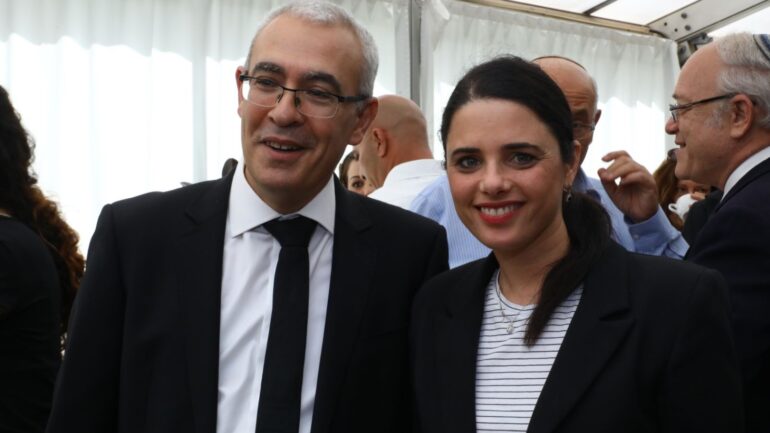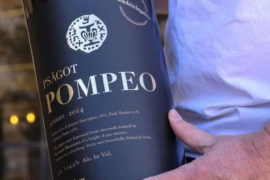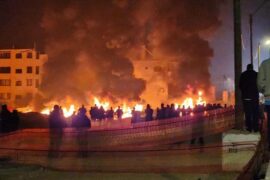Israeli Supreme Court Justice Ofer Grosskopf rejected the state prosecutor’s appeal against the district court decision to release the minor accused of involvement in planning the arson attack in Duma that killed three members of the Dawabsheh family in 2015.
The minor, who has spent over two years in administrative detention, will remain in full house arrest and be subject to a long list of restrictive conditions, including a vast number of prohibited contacts and electronic tracking.
In Judge Grosskopf’s ruling, it was stated that “the decision in the pre-trial creates a real erosion in the strength of evidence regarding the charge relating to the Duma attack and the other serious charge: arson and desecration of Abbey of the Dormition.”
The minor’s attorney, Tzion Amir, stated that “Undoubtedly the Supreme Court’s rejection of the state appeal was lawful and just. Although two-and-a-half years elapsed with a protracted and penetrating legal battle, two things are consoling: One is his release from detention; the other is the court determined the torture the minor underwent during his interrogations resulted in disqualifying confessions obtained by such improper means.”
“I very much hope the state prosecutor’s office will learn and internalize the position expressed in the decisions of the district court and the Supreme Court, and will consider canceling proceedings or at least the decisive aspects against the minor,” added Amir.
Attorney Adi Keidar of the Honeinu legal aid organization attacked the state prosecutor’s office appealing the district court decision.
“The state’s appeal would have best not been presented at all,” he said. “It symbolized persecution and continued torture against the minor, and mainly the prosecutor’s lack of internalization and the failure to accept the decision of the pre-trial.”
“The Supreme Court accepted our arguments as determined by the district court, and determined the pre-trial decision creates a real erosion in the evidence’s strength, especially regarding the grave charges. After disqualifying the evidence constituting the conclusion of the trial’s first stage, it now opens the way to continue the trial with the minor released until his acquittal,” he added.
It’s troubling that instead of checking the methods of its own security forces, the state has attempted to justify these methods and even lobbied to keep a minor incarcerated – especially after it’s been recognized by the court that this minor was tortured by the Shabak for a confession.
For much of the State of Israel’s history, political beliefs or the sector of society a person belonged to could justify extra-legal interrogation techniques and other forms of mistreatment by the security establishment. But the judicial reforms of Justice Minister Ayelet Shaked (Bayit Yehudi) have begun to remove the Supreme Court from the exclusive control of the state’s westernized ruling class.
Judge Ofer Grosskopf, one of Shaked’s new additions to the court, is widely regarded as a socially conscious arbitrator who often stands with the weak. He is also considered a protégé of former Justice Minister Daniel Friedmann, who attempted to democratize the Supreme Court between 2007 and 2009 but was maligned by the media and failed to achieve anything close to Shaked’s successes.
There’s room to be hopeful that a more politically diverse and socially conscious Supreme Court won’t allow the Shabak or any other security agencies from violating the human rights of marginalized Jews or Palestinians.





